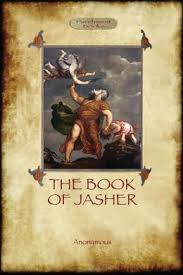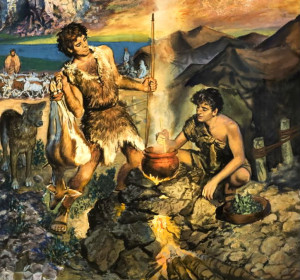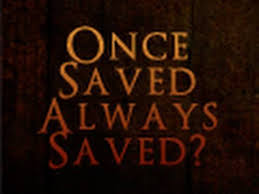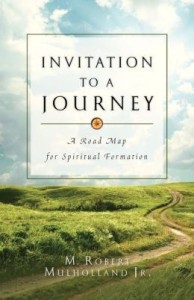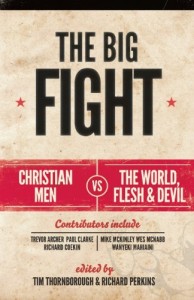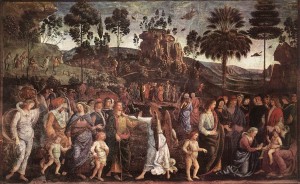Have you ever had a conversation with a Christian parent whose child has gone somewhat astray? In an apparent attempt to assuage the guilt for feeling bad about the child’s otherwi se nefarious choices, the parent will sometimes say, “At least my child doesn’t do drugs,” or “At least my child doesn’t sleep around,” “At least my child doesn’t smoke or drink,” or something to that effect.
se nefarious choices, the parent will sometimes say, “At least my child doesn’t do drugs,” or “At least my child doesn’t sleep around,” “At least my child doesn’t smoke or drink,” or something to that effect.
But that always leaves me scratching my head a bit. At what point did the measure of successful Christian parenting become, “At least my child doesn’t do drugs”? When did we lower our standards?
As the father of four (ages 10, 12, 16, & 18) I am well aware of the difficulties of parenting—parenting isn’t for cowards! It is hard work. I am grateful for a godly wife who has been enormously influential in the raising of our children.
I am also aware that we don’t get to pick our children and that otherwise godly parents can still sometimes have children who go wayward. We must remember that “train up a child in the way he should go; even when he is old he will not depart from it” (Prov 22:6 ESV) is a proverb and not a universal promise.
But, as a culture, we’ve lost our way. We’ve lowered our standards. How have we lowered our standards? Let me suggest three closely related items.
First, we’ve lowered our standards when we feel it’s more important to our child’s friend than it is to be our child’s parent. This is all too common in our culture. Parents who evidently want to re-live their “glory days” do whatever is necessary so that their 15-year-old will think they’re cool—or at least so that their 15-year-old’s friends will think they’re cool!
Let’s be honest. It’s important to have a good relationship with your children, and I hope that your child(ren)’s friends feel comfortable coming over to your home. But this doesn’t mean that you have to get a fresh tattoo and a body piercing so that a 15-year-old will think that you’re hip!
Your children have enough friends. What they need from you is for you to be their parent. They need you to love them unconditionally—even during the awkward years of adolescence as they learn to find their own voice in this world. They need you to be an example of what it is to follow Christ. They need to hear and see from you, “Be imitators of me, as I am of Christ” (1 Cor 11:1 ESV).
Second, we sacrifice our children on a variety of pagan altars. Let me suggest two such altars—work and materialism.
Work is good. Work existed prior to the Fall, and it’s good for a child to see her dad work hard to earn an income to support the family. But workaholism isn’t a good thing. Workaholism is idolatry. Workaholism is idolatry because we either find our identity in our work—instead of in Christ—or because we feel it’s necessary to work to provide the results we desire instead of trusting God to provide the results he desires. This isn’t an argument to be slothful. No, we should work and we should work hard, but we needn’t sacrifice our families on the altar of the workplace.
When was the last time you took time to rest from work? The Sabbath principle of rest was instituted for our sakes (Mark 2:27).
And to what end do we work? We work so that our children can have more “stuff” than we had. This is bowing at the altar of materialism. Yes, this is also an idol. We work to afford fancy vacations. We work to live a certain lifestyle. We work so that our 8-year-old can have a smart phone! Really?! What 8-year-old needs a smart phone?! Why don’t we work at being parents? Our children need their parents more than they need stuff.
Third, we’ve lowered our standards when we forget what the primary role of a parent is. The primary role of the parent is to “bring [our children] up in the discipline and instruction of the Lord” (Eph 6:4).
We’ve become so caught up in being our child’s friend that we’ve forgotten that our primary job is to disciple our children in the faith. Your child’s discipleship is your primary responsibility. It isn’t the primary responsibility of the pastor or youth pastor or children’s pastor. Mom and Dad, it’s your job.
The church is there to aide you in this process. The church should help you in this process, but the church can’t do it for you. You have a far greater impact on your child than any youth pastor will ever have, and your children will learn from your example—whether good or bad.
If you only attend church when you feel like it, then don’t be surprised when your child only attends church when he feels like—if at all!
If you disrespect your church leaders by “having them for lunch” (I’m speaking metaphorically here), then don’t be surprised when your child has no respect for the church or its leaders.
If you use foul language and watch promiscuous movies . . . I’m sure you’re getting the idea by now.
It’s the job of mom and dad to point their children to Jesus. It’s the job of mom and dad to point their children to the gospel. This is where we find our hope. We ultimately only “point” our children to the God who loved us all enough to send his only Son. And when we point our children to God, we allow him to shape their hearts and to draw them to himself.
Join me next time when we ask the question, “Have we raised a good, little Pharisee?”
For his glory,
Pastor Brian
“Hear, O Israel: The LORD our God, the LORD is one. You shall love the LORD your God with all your heart and with all your soul and with all your might. And these words that I command you today shall be on your heart. You shall teach them diligently to your children, and shall talk of them when you sit in your house, and when you walk by the way, and when you lie down, and when you rise.”
Deuteronomy 6:4–7
